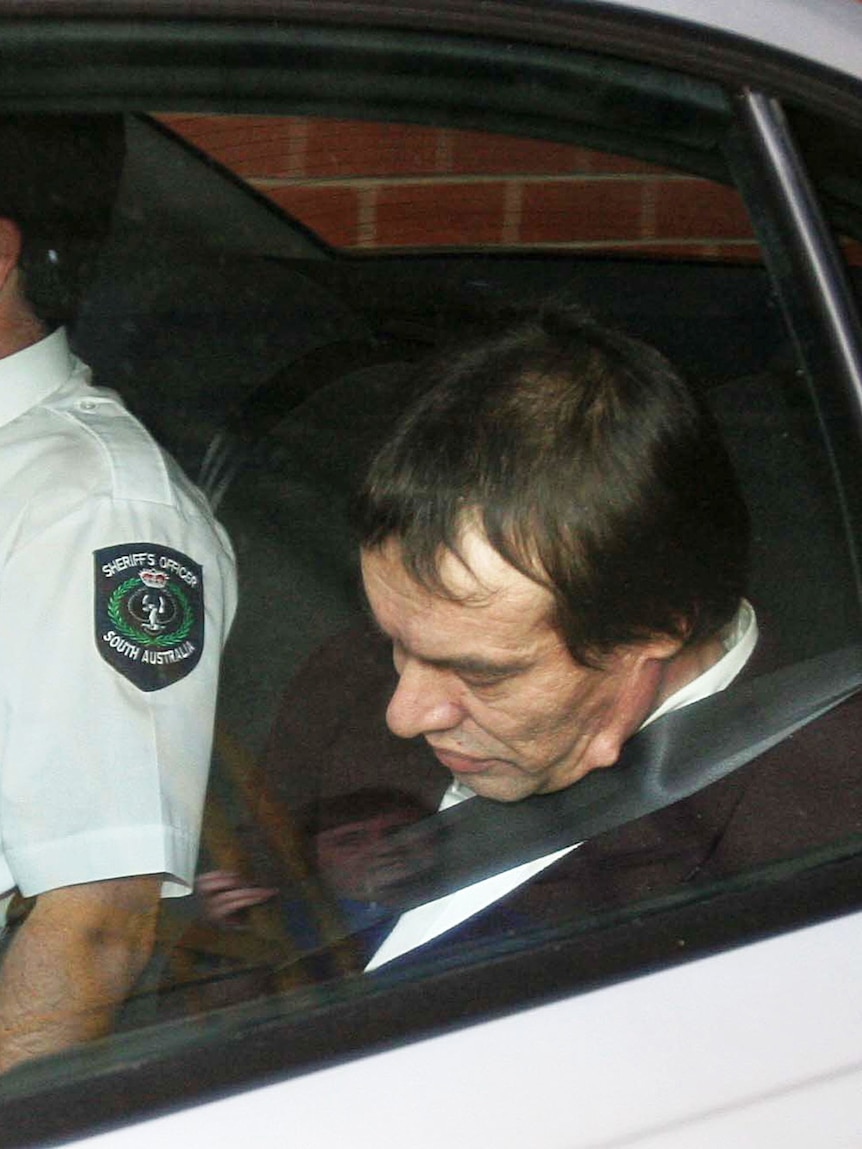Snowtown accomplice Mark Ray Haydon is being slowly reintroduced to the community, with the head of South Australia’s Parole Board saying the “world has changed a lot” since he was taken into custody.
Haydon has been released from jail and is residing at the Adelaide Pre-release Centre before his head sentence ends in May.
SA Parole Board chair Frances Nelson KC told ABC Radio Adelaide the pre-release centre was a “stepping stone”.
“He’s currently having some excursions with people to assist him, it’s not that we open the door and say, ‘see you later come back at 8 o’clock’,” Ms Nelson said.
“People have to obey a curfew and they have to obey the rules of the institution.
“Because when someone serves a long sentence – and Haydon’s done 25 years – the world has changed a lot.
“So, we would not be allowing him to go out on his own for the day, for example, and he wouldn’t want to, because the world for him is a pretty challenging place.
“He doesn’t know how to get public transport, he doesn’t know how to access Centrelink, he has to learn how to use a mobile phone; things that people take for granted, he has to learn.
“So, we have people working with him, who will go out with him and introduce him to catching public transport, how to shop, that sort of thing.”
First of four men convicted over murders to be given parole
The 65-year-old is the first of four men charged over the Snowtown murders to be given parole.
He was jailed for 25 years for seven counts of assisting the Snowtown killers, who murdered 11 people in total.
The murders, committed by John Justin Bunting, Robert Joe Wagner and James Spyridon Vlassakis, became notorious for the horrific way in which the victims were killed and their bodies were disposed of.
Haydon, despite being granted parole in February, had to wait for almost two months to be released to the pre-release centre.
The delay was caused by the fact that SA Attorney-General Kyam Maher, Police Commissioner Grant Stevens and the Commissioner for Victims’ Rights Sarah Quick had up to 60 days to decide if they wanted to ask for a review of the parole decision.
All three decided not to review so, the SA Parole Board arranged with The Department for Correctional Services (DCS) for his parole to begin.
While in the pre-release centre, Haydon is subject to both the centre’s rules and the conditions of his parole.
His parole conditions include electronic monitoring, a curfew, regular reporting to corrections, no contact with victims and no communication with the media.
“He’s still a prisoner, with the privilege of serving the balance of his sentence on parole until about the third week in May when his sentence ends,” Ms Nelson said.
Haydon still faces the possibility of being monitored beyond his 25-year sentence.
The state government has applied to have Haydon placed on an extended supervision order so he can have conditions placed on him, similar to those while on parole.
The Attorney-General also changed the law after a “loophole” was found in the legislation that may have allowed Haydon to return to the community without any supervision.
Ms Nelson said Haydon had been a model prisoner and had shown he was a low risk of reoffending.
“He is going to be out in the community and we’ve done our best to prepare for that eventuality,” Ms Nelson said.
“I understand that politicians react to community concern, but neither the politicians or members of the community are close to the case or the man as corrections are, as the parole board is, because we’ve monitored his progress over a number of years.
“He’s (got) high notoriety, and those offences were horrendous so, I understand that people in the community may be concerned because the Snowtown events are revisited and highlighted.
“But 25 years later we’re dealing with a different man and that’s the reality.
“The courts said he would serve 25 years, that’s a matter for the courts.”
A ‘difficult time’ for family of victims
SA’s Commissioner for Victims’ Rights Sarah Quick told the ABC she had kept victims informed about Haydon’s release from jail.
“This is obviously an incredibly difficult time for the victims,” she said.
“Just as it is a period of adjustment for Mr Haydon, it is a time of significant adjustment for victims.
“They are all coming to terms with what Mr Haydon’s release on parole and end of sentence means for them and their lives.
“Naturally, they feel uncertain, apprehensive and fearful.”
Ms Quick encouraged victims to access counselling support if they felt they were struggling to cope.




